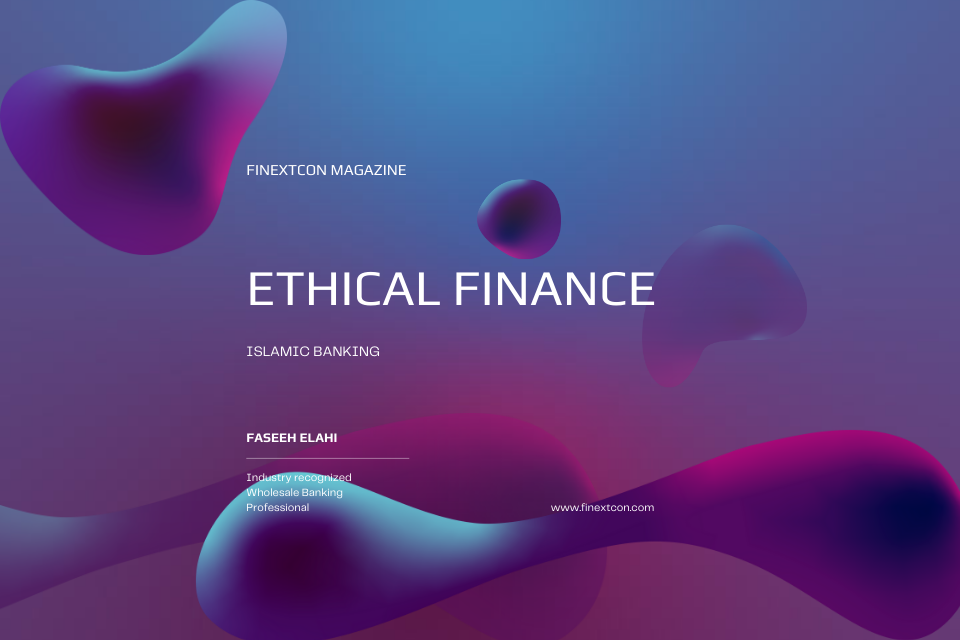The predominant Conventional Banking system has been strongly challenged by Islamic finance which has grown manifold in the previous three decades due to its appeal of being highly ethical and fair to the stakeholders. The current size of the industry is estimated close to USD3 Trillion with a projection of it reaching USD3.7 Trillion by the end of 2024. Though still considered in its nascent stage with Islamic Development Bank, the first multilateral finance institution being founded in 1973 followed by the establishment of the first mainstream Islamic bank coming into shape in 1975 in the UAE, the Islamic Finance industry has already created a sizable asset base and business opportunities for the world additionally contributing to a significant share in generating employment opportunities. At present over 530 Islamic banks, windows, and financial institutions are operating globally, most of which have majorly come up in the past two decades, add to this the recent Fintech wave has brought about 50 plus odd Islamic Fintechs which are rooted in the same philosophy of ethical finance and would act as major enablers for the core function. The challenge now is not just to follow up and enhance the growth attained in the previous years but to build on to a more significant cause of Ethical Finance which needs to be put to the larger good of humanity, not being specific to only Islam. The top five markets of growth attained to date and still holding the maximum potential for growth are Malaysia, Indonesia, Bahrain, UAE, and Saudi Arabia – this however will not be the landscape five years down as the popularity of Islamic Sukuks is growing by leaps and bounds in the western financial systems.
Islamic Finance
Ethical Finance is deep-rooted in the Islamic Finance methodology which emphasizes not just over-building up of real assets but also on the principles of loss sharing and eliminating uncertainty, typically being a partner in trade rather than just being a financier. This implies getting to know the business and taking balanced risks to safeguard the interest of both the obligor as well as the financial institution. Projects which are thus considered not viable can be eliminated from taking off by the collective intelligence of the institutions rather nurturing a sub-standard asset for the future. This intervention by experts of Islamic Finance and business becomes even more important when the industry is poised to grow at an estimated rate of 10 to 12% per year even after the wrath of the COVID-19 pandemic.
Positioning UAE as the Hub of Ethical Finance: A Paradigm Shift in Islamic Economy
The industry professionals would agree that Islamic Finance, rather being an alternative option is catching up as mainstream choice and the most preferred way to the bank by individuals and institutions alike due to the fair practices involving an underlying asset, elimination of uncertainty, and support provided by the Governments at large. Seeing the momentum initiatives to foster developments in Ethical Finance have paced up and UAE has proved to be the hub not only in reinventing the process but making the larger population aware of the intrinsic approach of the Islamic Economy which requires Ethical Finance to back it up. UAE has a vision of positioning itself as the center of the Islamic Economy and with a strategic location and high potential human capital employed it is much doable. The country has made it evident by taking steps such as the launch of the Global Islamic Economy Summit which is held every two years encompassing all economic activities under the sun and coming up with the more specific Ethical Finance awards backed by leading market players including ADIB, DIB, Thomson Reuters and supported by Government institutions such as the Dubai Chamber and the Islamic Economy Development Centre in the UAE we foresee a consistent flow of new ideas and applied techniques in the field of Fintech, microfinance, crowdfunding, halal tourism, and modest fashion to name a few not missing out on the multi-million dollars generated in Zakat i.e. obligatory almsgiving.
The proper allocation of the funds earmarked for Zakat only has the potential to change the lives of scores of underprivileged individuals who wish to start their small businesses but struggle for seed finance, if the funds are channeled effectively poverty can be a thing of the past. To sum it up I would say we have high hopes for the future of Ethical Finance which is not just meant for the followers of Islam but for the greater good of the entire humanity and world economy.
I look forward to discussing the different aspects of Ethical and Islamic Finance in my following articles, until then I am looking forward to connecting with like-minded professionals and start a new hashtag until we all make the Ethical Finance trend as a way of life #EmbraceEthicalFinance. If you have managed to read up to this point I look forward to your inputs and feedback on how we can make an impact supporting the cause.
About the Author
Faseeh is a seasoned professional with over 17 years of experience across most areas in Corporate and Wholesale Banking, with a larger part of his career leaning towards Relationship Banking and Coverage roles. In his present assignment, he works for the Wholesale Banking Group at the Abu Dhabi Islamic Bank (ADIB). Working closely with the leadership team, his mandate is to deliver on the overall management goals from a Quality Control and Operational Risk perspective. This includes Risk and Control assessment, enhancing the Policies &Procedures specific to Wholesale Banking, and taking on special projects as and when assigned.
